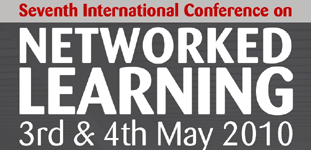

Teaching As Assisting Others' Performance
Habibah Ab Jalil, Universiti Putra, Selangor, Malaysia
Angela McFarlane, University of Bristol, United Kingdom
Maarten de Laat, University of Utrecht, Netherlands
Abstract
The emergence of the internet has created accessibility and opportunities
for teaching and learning. Nowadays, computer-mediated communication (CMC)
is widely used in online learning environments in a vast number of higher
education institutions. This article reports findings from a study that
investigated the implications of participation in online discussions for
the role of teaching. The aims of the study were: 1) to examine tutor-student
and student-student interactions for evidence of ‘assistance' in
the postings to a ‘Discussion Board'; and 2) to explore the tutor-student
and student-student assistance patterns in the Discussion Board postings,
associated with different task types. The underlying premise in the study
was a unified theory of teaching and education which draws on the work
of L.S. Vygotsky and neo-Vygotskian researchers and offers a theorization
of teaching as assisted performance. This idea articulates and conceptualises
a form of teaching that is not just evidenced in the tutor's role but
also amongst the students. Sociocultural theory also proposes that to
understand students' learning in CMC, it is necessary to study the social
interactions of teaching and learning that occur in the online environment.
Data collection and analysis were carried out in two stages that included:
1) content analysis to explore the nature of assisted performance provided
in the Discussion Board, according to participants' role and task types;
and 2) mapping the interactions and describing the patterns by using a
social network approach. The categories of Scaffolding, Feedback on Performance,
Cognitive Structuring, Modelling, Contingency Management, Instructing
and Questioning, were used to analyse the message postings, or means of
assistance in CMC. Through the analysis, we aimed to obtain an understanding
of the nature of assisted performance and pattern of interactions among
two groups of a Masters programme in a public university. Analysis revealed
that ‘teaching' was evidenced in the students' role, however, the
pattern of assisted performance by peers or a tutor depended on one or
more of the following factors: type of task (the nature of task initiated),
group formation (either one large group or several small working groups)
and tutor management (the degree of tutor involvement in responding to
students' posting).
| About NLC | Welcome Messages| Acknowledgwments | Conference Proceedings| Keynote Speakers| Index of Presenting Authors| Contact |